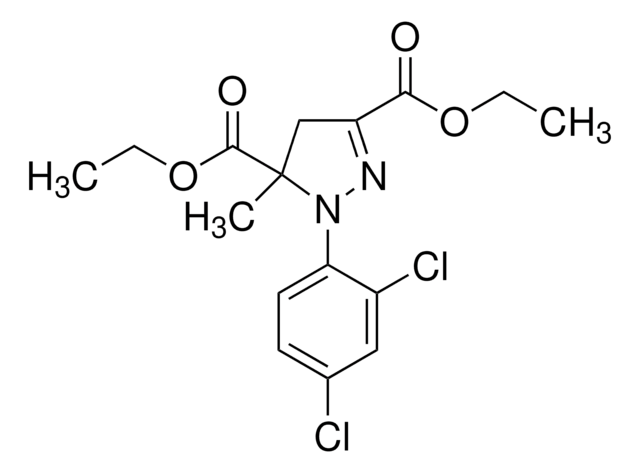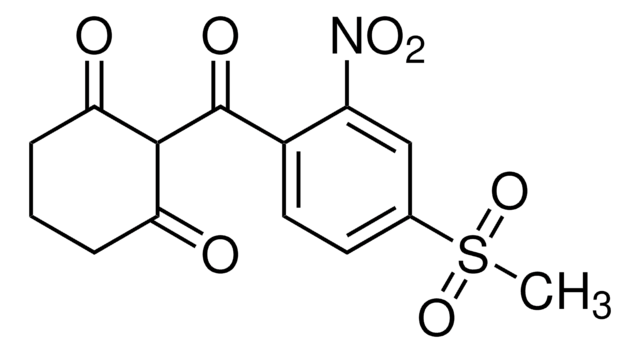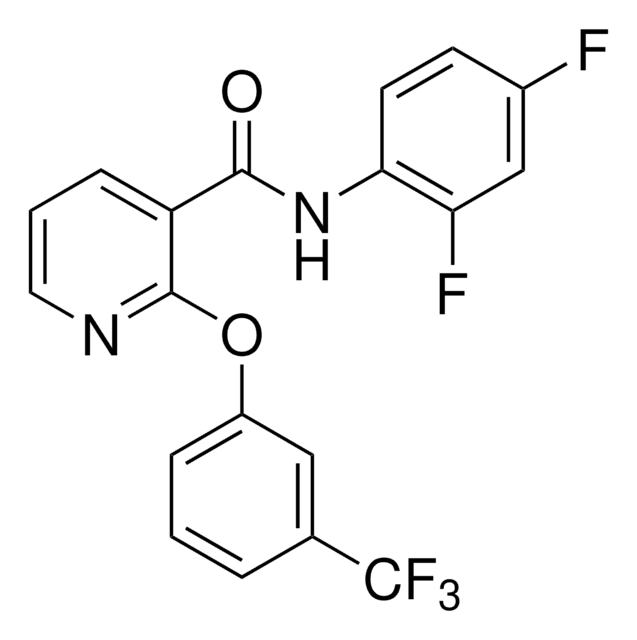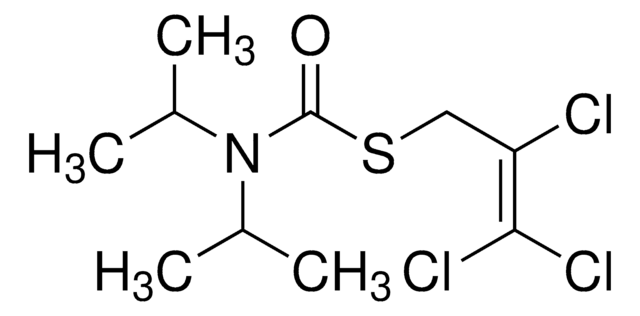36175
Napropamide
PESTANAL®, analytical standard
Synonym(s):
N,N-Diethyl-2-(1-naphthyloxy)propanamide
About This Item
Recommended Products
grade
analytical standard
Quality Level
product line
PESTANAL®
shelf life
limited shelf life, expiry date on the label
technique(s)
HPLC: suitable
gas chromatography (GC): suitable
mp
73-78 °C (lit.)
application(s)
agriculture
environmental
format
neat
SMILES string
CCN(CC)C(=O)C(C)Oc1cccc2ccccc12
InChI
1S/C17H21NO2/c1-4-18(5-2)17(19)13(3)20-16-12-8-10-14-9-6-7-11-15(14)16/h6-13H,4-5H2,1-3H3
InChI key
WXZVAROIGSFCFJ-UHFFFAOYSA-N
Looking for similar products? Visit Product Comparison Guide
General description
Application
Recommended products
Legal Information
Storage Class Code
11 - Combustible Solids
WGK
WGK 2
Flash Point(F)
Not applicable
Flash Point(C)
Not applicable
Personal Protective Equipment
Choose from one of the most recent versions:
Already Own This Product?
Find documentation for the products that you have recently purchased in the Document Library.
Our team of scientists has experience in all areas of research including Life Science, Material Science, Chemical Synthesis, Chromatography, Analytical and many others.
Contact Technical Service








